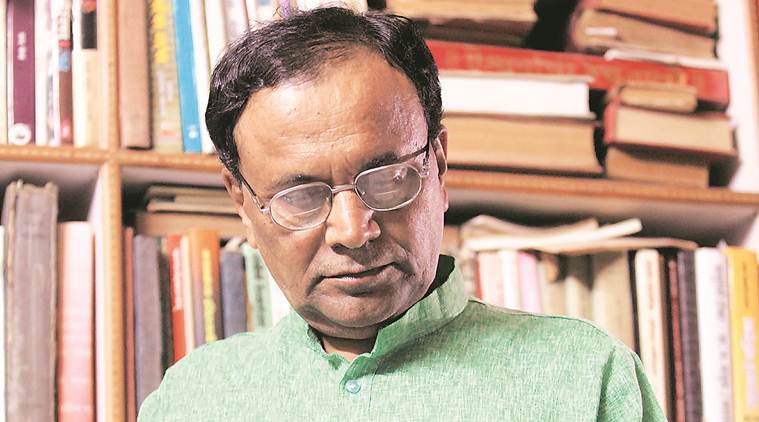Stay updated with the latest - Click here to follow us on Instagram
‘Marathas should not give up farming’
Scholar and author Dr Sadanand More tells The Indian Express why Maratha reservation is necessary in today’s Maharashtra.

What will be the socio-economic implications of Maratha reservation?
The reservation in government jobs and educational institutions will help in uplift the Marathas socially, educationally and economically among the backward classes. Marathas constitute 30 per cent of the state’s population. In that sense, their well being would lead to overall welfare of Maharashtra.
There is a simmering discontent within the OBC about the quota?
The fear is baseless. But debate is natural… each community is going to ensure that their interests are protected. Marathas are getting 16 per cent reservation under the socially and educationally backward class category. The existing 52 per cent quota remains intact. The Maratha reservation does not hurt OBC quota.
But questions are being raised about the social backwardness of the Marathas who are perceived as warriors and politically dominant?
There is a difference between perception and reality. During Shivaji Maharaj’s regime, Marathas gained the warrior class tag. During British rule, the Maratha regiment came into existence. But a sizeable population of the Marathas were always restricted to agriculture. Mahatma Jyotiba Phule’s commentary depicting the anguish and plight of the farmers is about the poverty among Marathas. Majority of the farmers are Marathas. The political dominance of Marathas is because they are the majority community. Just because most number of chief ministers or ministers belonged to the community, it does not mean that all are prosperous.
Will reservation further lead to polarisation between Marathas and OBCs?
Why should it? If we look at the composition of our society, specially in rural areas, all communities are socially and economically interlinked. They are interdependent upon each other for trade and work.
Do you see a growing trend among Marathas shifting to non-agriculture jobs?
There is some disillusion because of the agrarian crisis. But it should not happen. The reservation should bring greater prosperity and stability. In rural economy, we still consider family as a unit and not individual. So, if there are three or four brothers, one may get a government job. But there are others who would be confined to agriculture and industries. I think Marathas should not give up farming. It is not just about their own upliftment. It is about the well-being of the entire society.
What explains the educational backwardness among the Marathas?
It is a result of poverty. Marathas, who are heavily dependent on agriculture, have always faced financial uncertainty due to failure of crops and drought. A family, which is struggling economically, cannot afford expensive higher education.
The CM was personally targetted by Maratha organisations.
I believe the chief minister has sincerely worked towards enforcing Maratha reservation within a short span. The Maratha organisations will certainly acknowledge the reality… the anger against the CM will diffuse to a great extent. At the same time, I would like to say that our social structure is such that we always thrive in mutual disbelief. So, when our concerns are not addressed, we target individuals. It is not confined to any one community.
What explains the unanimous passage of the Maratha legislation in the state Assembly and Council?
It was expected. All parties have supported the reservation. The Congress-NCP regime had proposed Maratha reservation. But it was challenged in court.
Will the reservation withstand legal challenges?
I would like to be positive. The government has taken adequate safeguards to ensure that the law serves its stated objectives. I would like to believe that the judges, when confronted with any such situation, would take a realistic view.
NCP president Sharad Pawar has been perceived as the great Maratha leader. Will Maratha reservation alter the political dynamics?
Let us not confine Sharad Pawar to a community. He is a national leader. Where is the question of losing or retaining the Marathas? Pawar’s politics and public work transcend caste and state. When we think of former Prime Minister Manmohan Singh, we never think of him as a great Sikh leader. Or when we think of Prime Minister Narendra Modi, we never say he is a great OBC leader. They are all national leaders.







